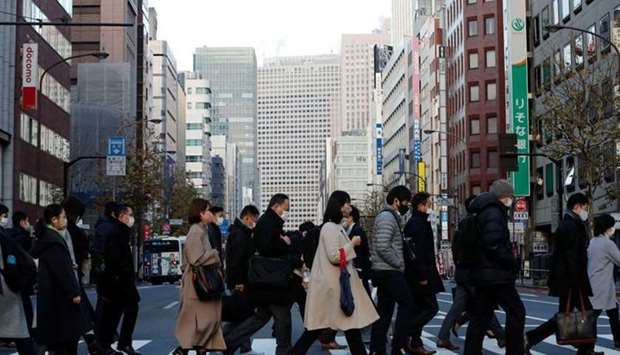The proposal for an emergency declaration running from Jan. 8 to Feb. 7 was approved at a morning meeting, Economy Minister Yasutoshi Nishimura said. Its restrictions centre on measures to combat transmission at bars and restaurants, cited by the government as key risk areas.
Though still less seriously affected by the pandemic than many countries around the world, Japan saw new daily infections top 6,000 for the first time on Wednesday.
Positive tests in Tokyo on Thursday jumped from the record of 1,591 the previous day, the metropolitan government said.
Prime Minister Yoshihide Suga will hold a news conference at 6 p.m. (0900 GMT) to formally announce the decision and curbs to be imposed in Tokyo and the neighbouring Saitama, Kanagawa and Chiba prefectures - about 30% of the country’s population.
But medical experts have said they fear the government’s plans might be inadequate, with new cases hitting highs around the country.
Government officials have been in talks with experts this week to assess steps to try to bring the surge under control with as little damage as possible to the economy.
With an eye on the looming Tokyo Olympics and the fragile state of the world’s third-biggest economy, Suga has favoured limited restrictions.
Measures to be included in the state of emergency from Friday include asking restaurants and bars to close by 8 p.m., requesting residents to refrain from non-urgent outings, urging telecommuting, and limiting attendance at sporting and other big events to 5,000 people. The four prefectures are home to about 150,000 restaurants and bars.

